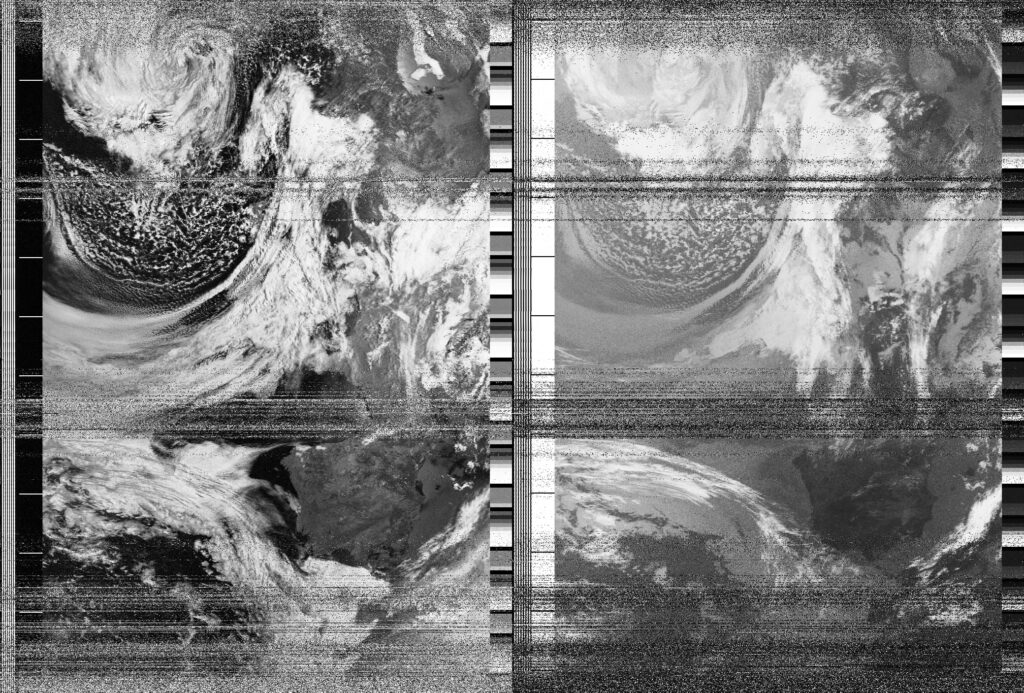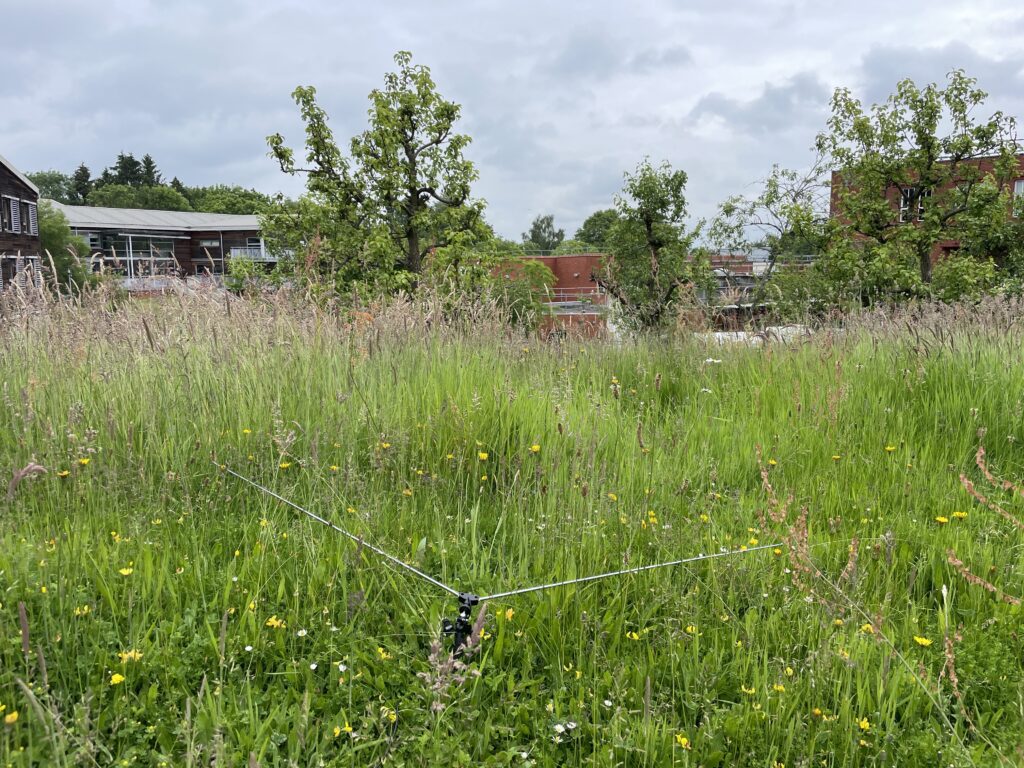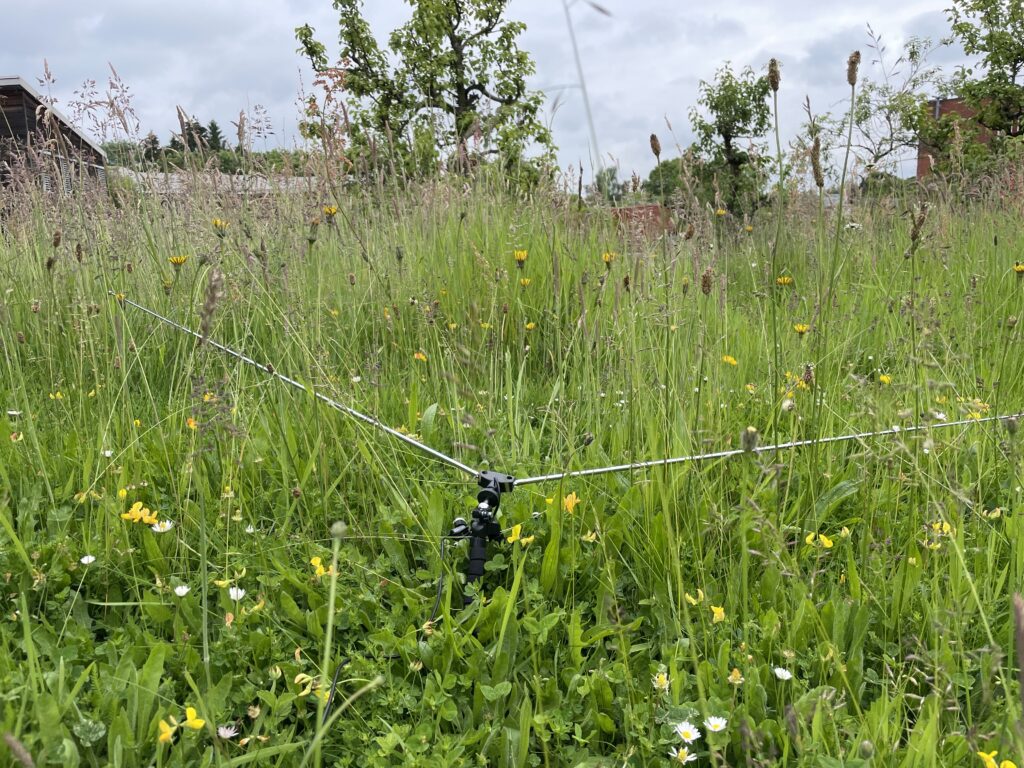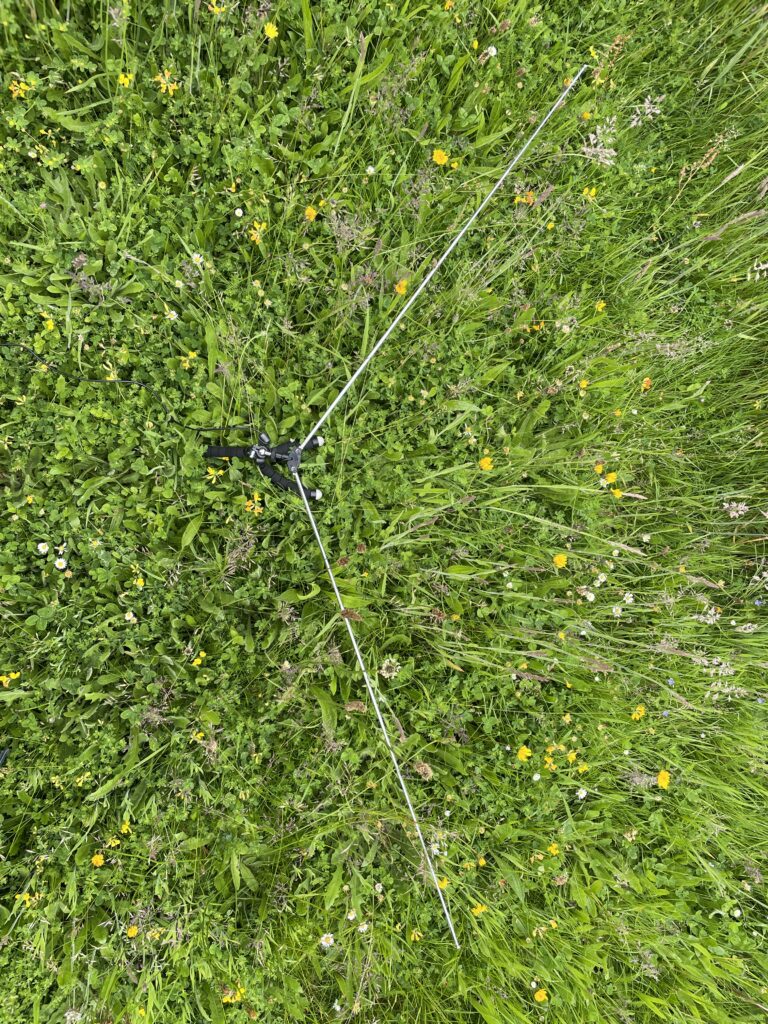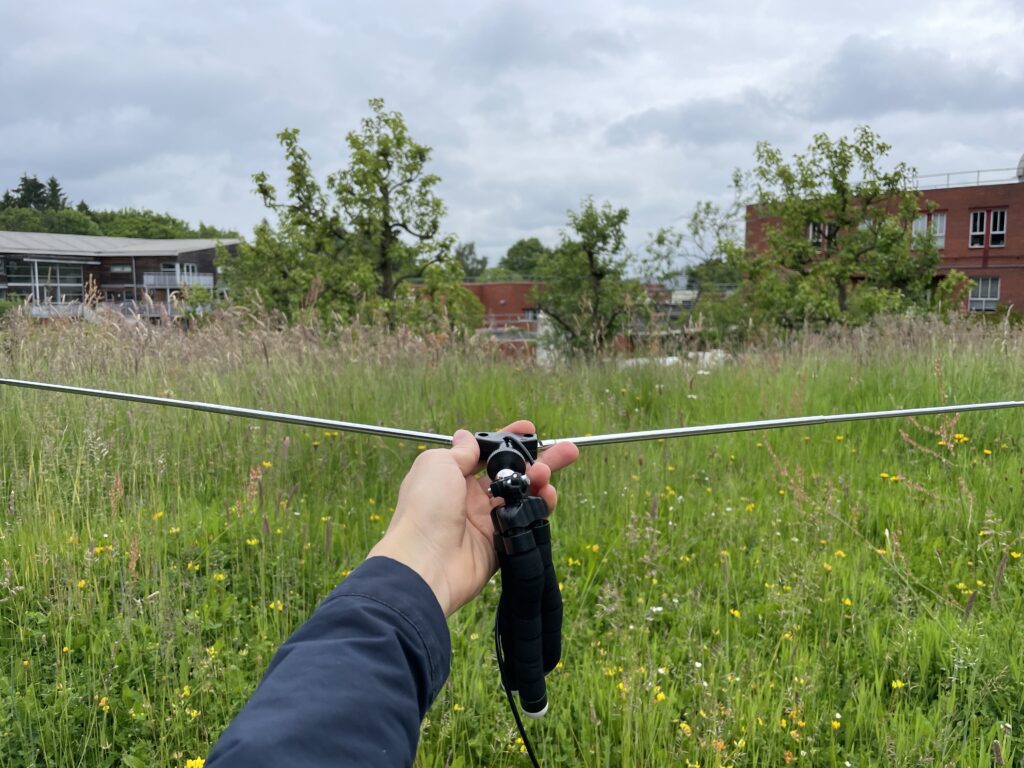Local Date
4 June 2024Local Time
09:27Location
Grassy Field near the Physics Department, Royal Holloway University of LondonCountry or Territory
United KingdomContributor
Sasha EngelmannSatellite
NOAA-15Radio Callsign
Archive ID
Coordinates
Today has been about rhythms. I organised and choreographed so many rhythms for myself and others, but the most intense was chairing a meeting with Soph and two Croatian scientists with whom I have been in email contact for months, and whose work I have studied extensively in order to include in a recent article on 'wind's animacies' and dust over the Mediterranean and Adriatic Sea. After so many protracted email exchanges and engaging slowly and carefully with their scientific work these last months, meeting them online was an experience of personality-encounter, joy, Croatian-language exchanges and rapid firing of questions (though I didn't manage to ask all the questions on my list). Later, during a research group seminar on ‘research rhythms’, we read aloud and discussed fragments of writing that suggested different rhythms, whether poetic, scholarly, scalar, material, or musical. The notion of ‘rhythming’ in research and a general tuning to the ‘science of the word’ is examined in an essay called "Rhythm, or On Sylvia Wynter's Science of the Word" by Katherine McKittrick, Frances H. O'Shaughnessy and Kendall Witaszek (2018). Starting from the work of poet and philosopher Aime Césaire, the authors write: “Césaire’s observation—that a creative science reckons with how poetic knowledge “is born in the great silence of scientific knowledge”—calls on the harmonious structures of collaborative thought in order to reconceptualize what it means to be human”. In other words, a 'creative science' suggests that there are ways to speak and enunciate research (including science) that are more truly collaborative and so rhythmic. I was immediately reminded of the interdisciplinary collaboration of the Croatian scientists and their willingness to be in dialogue with me and Soph on the call. McKittrick et al (2018) continue: “Like Césaire, Wynter does not turn away from scientific knowledge and privilege poetic knowledge, but rather shows that science of the word is an articulation of science and poetics together. This provides a “fulfilling knowledge,” one that understands the human in its most actualized form through the “climate of emotion and imagination.”” I love the idea of ‘science of the word’, that through a sensitivity to the craft of writing and ‘making’ words we are enacting a science that can perhaps see through the ‘silences’ of normative Science, which as the authors outline, has been responsible for articulating a version of nature that makes it possible to imagine and enact culture as separate to nature. We can ‘think science and poetics together’ in ‘fulfilling’, actualised and emotional ways. This is where I hope the collaboration and conversation with the scientists is going, though I know it is unfair to presume or predict outcomes. In the mean time, I want to return to their articles with an attention for 'science of the word' and 'narrative devices'.
